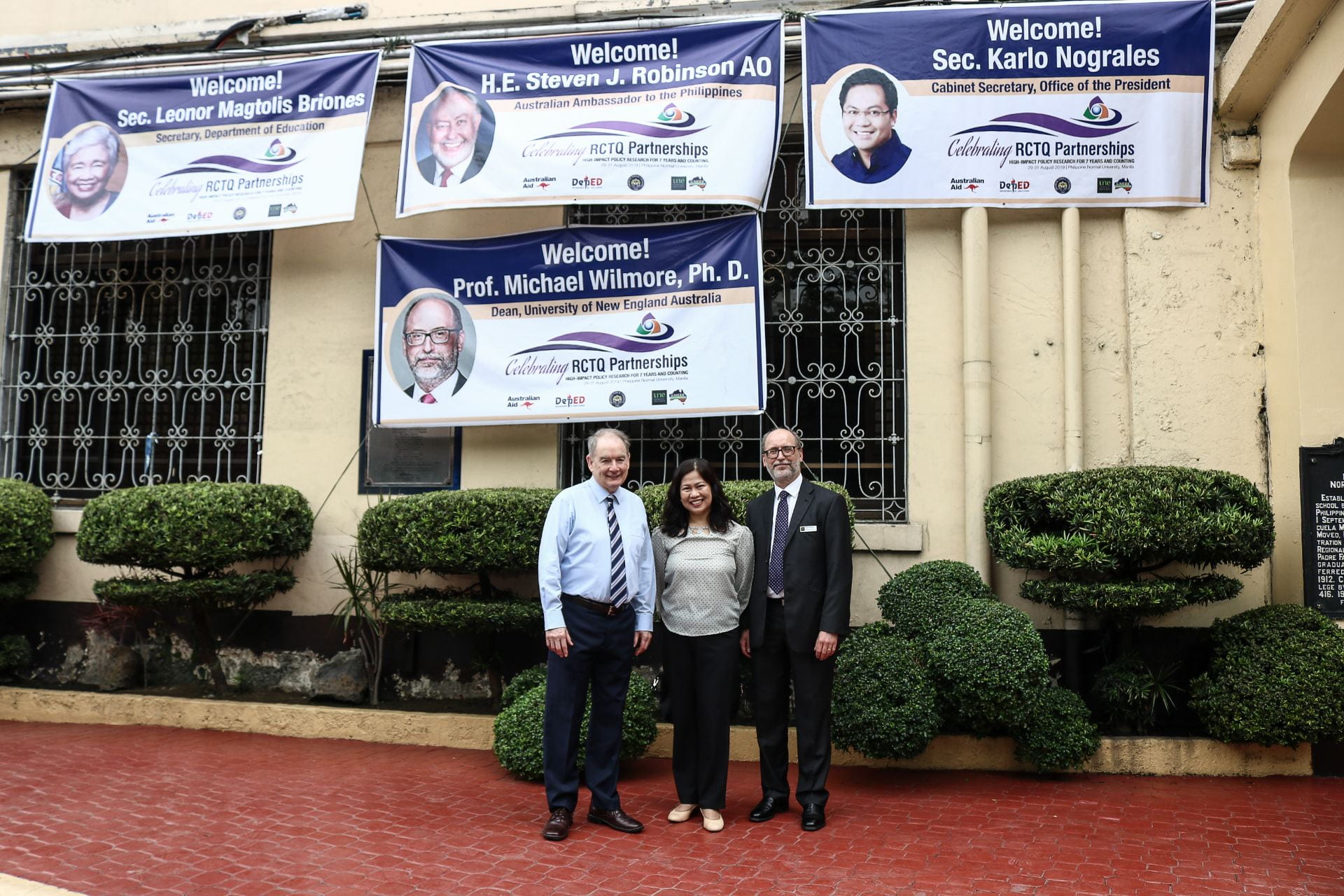In 2016, 1.4 million students in the Philippines entered a Grade 11 class for the first time in the country’s history. In 2017, 1.2 million of these students enrolled in Grade 12. Another first. These were extraordinary milestones in an ambitious plan to modernise the nation’s education system.
The first-ever cohort of Year 11 students required the addition of 30,000 new teachers and classrooms. Another 30,000 new teachers, who had never taught Grade 12 before, were added into the system the following year, along with another 30,000 new classrooms.
Since 2012, with funding support from the Australian Government, University of New England (UNE) researchers from the SiMERR National Research Centre have been working with the Philippine Normal University (PNU) to bring the system in line with current international trends and standards.
This transformation has included adding three extra years: kindergarten, Grade 11 and Grade 12, to the schooling system. UNE’s researchers have been involved in research projects to support teacher and school leader quality within the new system.
“Our initial task was to set up a national research centre at PNU with a focus on teacher quality. PNU has been decreed by government as the National Centre for Teacher Education in the Philippines, and the only university that has a single focus on teacher education,” UNE’s director for the project, Professor John Pegg, says.
“The research center (RCTQ) undertakes strategic research to collect national data to inform national system transformation policy impacting on schools and the university education sector.”
From this purpose-built research facility at PNU, researchers from SiMERR have co-developed the country’s first ever national standards for school principals and supervisors across four career stages, redeveloped professional teacher standards to cover four career stages, and provided the research to transform the National Educators’ Academy of the Philippines to drive the professional development of over 850,000 teachers and 50,000 school heads.
The enormity of the task has seen the project transform into a long-term partnership, which will officially continue for at least another two years to support the massive changes focusing on enhancing the quality of school leaders, teachers, students and teacher education in the tertiary sector.
“The education transformation means a cohort of primary and secondary school students in the Philippines are currently being taught from a completely new curriculum each year, as the teaching program is realigned to complement the newly implemented Grades 11 and 12 school years,” explains Professor Pegg.
“Before this, students had been graduating from university without the skills to qualify them for higher-level professional jobs outside their country, because they didn’t have enough years of study. Graduates of engineering for example, weren’t engineers, they were classified as technical assistants.
“All universities will now need to teach different content to a cohort of students that are now two years older than before.”
Travelling with Professor Pegg to see the progress and sign a new agreement with PNU to continue the partnership, Professor Michael Wilmore, Dean of UNE’s Faculty of Humanities, Arts, Social Sciences and Education, said the project was “impressive”.
“It’s been a phenomenal piece of work by SiMERR to support the wholesale transformation of education in the country, and change the education and employment outcomes for students who have been disadvantaged by a system out of sync with the world.”
“The scale of the project is staggering. But it’s wonderful that UNE can be involved to make such a difference to so many lives and to be at the heart of it. It was a proud moment to see every single piece of documentation and process for teacher training and education standards stamped with the UNE logo!”
With such large-scale transformation, more research and policies are needed – and will now be developed – to embed the new system and ensure its ongoing success.
SiMERR is The National Centre of Science, Information and Communication Technology, and Mathematics Education for Rural and Regional Australia located within the School of Education at UNE.



Recent Comments